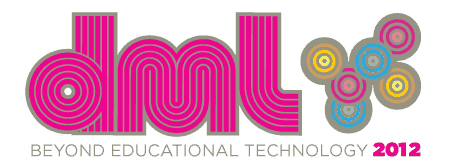DLI: Education for a Digital Democracy: Harnessing the Power of New Media to Empower
More than ever before, participatory digital technology is changing the ways young people are socializing, learning, consuming, and producing media products (Watkins, 2009; Livingstone, 2009; Lenhart, 2009; Lenhart, 2010). New media offer significant opportunities for authentic learning experiences, as well as new opportunities for civic participation; indeed, digital tools can be used not only to engage students in meaningful learning experiences, but also to shape ways people participate and interact with the world (Lievrouw, 2011).
At the same time, however, the "new culture of learning" (Thomas and Brown, 2011) poses significant policy and pedagogical challenges for educators (Frey and Fisher, 2008). While students continually encounter myriad opportunities to engage in new media learning practices, researchers have identified a “participation gap” that divides meaningful engagement with new media tools by race and class in ways that mirror the U.S. academic achievement gap (Jenkins, 2008; Margolis et al, 2008). Although urban youth are gaining increased access to participatory digital technology, they often lack access to sophisticated instruction in digital media analysis and programming that can help them become producers of digital content rather than mere consumers (Kellner & Share, 2009). In a similar challenge, reform efforts in schools and other social institutions often fail to honor the voices of young people and engage them in decision-making about issues that affect their lives; adults make decisions for young people rather than with them.
The participants in this interactive, participatory workshop will work together with audience members to explore how critical digital literacy and digital civic engagement can empower urban students by giving them opportunities to express themselves, learn in new and meaningful ways, and take action to solve social problems. The workshop will be led by Los Angeles high school students who are involved in nationally recognized youth participatory action research programs in which they conduct research aimed at improving schools and communities and promoting social justice. Along with teachers and graduate students, these powerful young people from the Council of Youth Research and the Black Male Academy will demonstrate how they use social media sites like Facebook, Twitter, YouTube, and blogs to create and disseminate research and create a national network of young people interested in civic engagement and education reform.
Theoretically, the ideas that the students and audience members in this workshop will be discussing come from the current scholarship in literacy, learning and democracy; however, this workshop will push the boundaries of these theories by examining the ways that understandings about learning, teaching and public engagement are being constructed within the new, media-rich environments in which students are immersed. Students will demonstrate with the audience the kind of pedagogy that they argue all young people deserve, and they will engage audience members in group dialogue and brainstorming about cutting edge ways to integrate technology into urban students’ lives. This collaborative session will spark conversations that will continue to grow as students, teachers, and audience members connect online and find new ways to use technology in transformative ways with young people.



